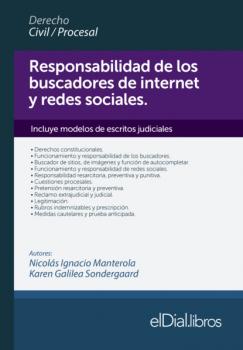ТОП просматриваемых книг сайта:
Математика
Различные книги в жанре Математика, доступные для чтения и скачиванияАннотация
A comprehensive and hands-on guide to crucial math concepts and terminology In the newly revised third edition of All the Math You’ll Ever Need: A Self-Teaching Guide , veteran math and computer technology teacher Carolyn Wheater and veteran mathematics author Steve Slavin deliver a practical and accessible guide to math you can use every day and apply to a wide variety of life tasks. From calculating monthly mortgage payments to the time you’ll need to pay off a credit card, this book walks you through the steps to understanding basic math concepts. This latest edition is updated to reflect recent changes in interest rates, prices, and wages, and incorporates information on the intelligent and efficient use of calculators and mental math techniques. It also offers: A brand-new chapter on hands-on statistics to help readers understand common graphs An easy-to-use-format that provides an interactive method with frequent questions, problems, and self-tests Complete explanations of necessary mathematical concepts that explore not just how math works, but also why it worksPerfect for anyone seeking to make practical use of essential math concepts and strategies in their day-to-day life, All the Math You’ll Ever Need is an invaluable addition to the libraries of students who want a bit of extra help applying math in the real world.
Аннотация
Rank-Based Methods for Shrinkage and Selection A practical and hands-on guide to the theory and methodology of statistical estimation based on rank Robust statistics is an important field in contemporary mathematics and applied statistical methods. Rank-Based Methods for Shrinkage and Selection: With Application to Machine Learning describes techniques to produce higher quality data analysis in shrinkage and subset selection to obtain parsimonious models with outlier-free prediction. This book is intended for statisticians, economists, biostatisticians, data scientists and graduate students. Rank-Based Methods for Shrinkage and Selection elaborates on rank-based theory and application in machine learning to robustify the least squares methodology. It also includes: Development of rank theory and application of shrinkage and selection Methodology for robust data science using penalized rank estimators Theory and methods of penalized rank dispersion for ridge, LASSO and Enet Topics include Liu regression, high-dimension, and AR(p) Novel rank-based logistic regression and neural networks Problem sets include R code to demonstrate its use in machine learning
Аннотация
"Aunque la palabra genio a menudo se usa en la cultura popular y en los medios de comunicación, se usa con mayor frecuencia en completa ignorancia de la extensa investigación científica sobre ese mismo tema. Estas investigaciones comenzaron hace más de 150 años y continúan hasta nuestros días. Por supuesto, estos resultados de investigación no son accesibles para los lectores comunes. La mayoría de los resultados están enterrados en revistas técnicas llenas de estadísticas esotéricas y matemáticas. Por esto, los descubrimientos centrales deben extraerse y comunicarse a un público más amplio de alguna manera. Ese es uno de los principales objetivos de este libro."
Responsabilidad de los buscadores de Internet y redes sociales - Nicolas I. Manterola
Derecho Civil/ProcesalАннотация
La responsabilidad civil de los titulares de los buscadores de internet (como Google, Yahoo!, Bing) y de las redes sociales (como Instagram, Facebook, Twitter) ha generado, tanto en la jurisprudencia como en la doctrina, más controversias que acuerdos. Nos proponemos estudiar y analizar pormenorizadamente las diferentes posturas que gobiernan la materia en la actualidad y, a su vez, brindaremos al lector una visión renovada que propone una nueva teoría: la responsabilidad obligacional de los titulares de los buscadores y redes sociales, enmarcada en el derecho del consumidor y en los derechos constitucionales. Nos introduciremos en el mundo de internet, examinaremos los derechos constitucionales en pugna y, luego, nos abocaremos a analizar el funcionamiento de los buscadores de internet y su responsabilidad civil, estudiando las teoría subjetiva y objetiva, y proponiendo una teoría obligacional de la responsabilidad. Con igual énfasis, nos enfocaremos también en la responsabilidad de las redes sociales. Finalmente, dedicamos un capítulo completo al estudio de herramientas e institutos procesales relacionados con los reclamos extrajudiciales y judiciales en la materia. Destacaremos cuestiones de competencia y legitimación, la pretensión preventiva, la pretensión resarcitoria, las medidas cautelares y la producción de prueba anticipada. Finalmente, concluimos con un anexo de modelos, que servirán de guía al colega que se embarque en un reclamo contra los buscadores y redes sociales.
Информация о книге
Автор произведения Nicolas I. Manterola
Жанр Математика
Серия Derecho Civil/Procesal
Аннотация
"The human brain is neutral, it does not distinguish between right and wrong, ethical and non-ethical behaviour. It only learns and optimizes whatever is repeated" Talking about risks implies talking about decisions, those we do make and those we don't. Learning how to manage those risks requires considering the decision content and, fundamentally, understanding what drives us to «make» a decision. We would all probably agree that the current state of the global ecosystem demands urgent action. It seems that changing radically the way in which we decide is necessary for all the species of the planet to keep on coexisting. But, how do we do it? Why are we still chained to a decision-making model that has shown to be poor in terms of sustainability and ethics? It may be that the answer lies in our own evolution, but what kind of biological and cultural evolution process transformed humans into «not so good» decision-makers at recognizing and becoming responsible for the impacts and potential responses of the ecosystem towards their decisions? This book approaches these questions with a view to understanding who has been and who currently is the Western decision-maker. It proposes a paradigm shift that makes «ecosystemic» management of decisions and risks possible. Through a deep reflection about the topic, Rita Carrizo -the author- seeks to connect contributions from the fields of biology, genetics, sociobiology, neurosciences, systems thinking and ontology of language.










